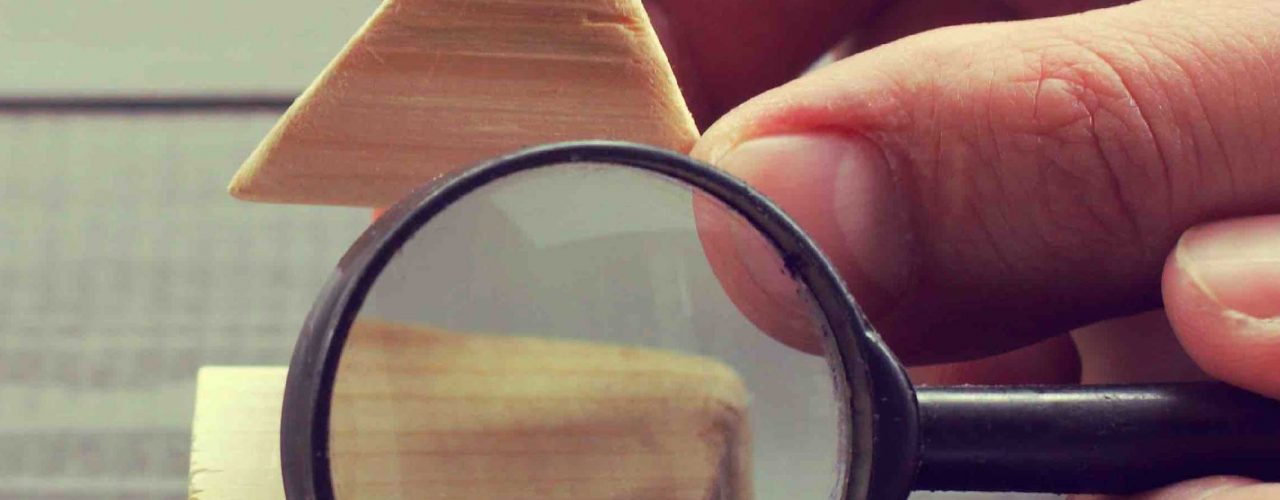
Taking the leap of faith into homeownership is a BIG DEAL (No pun intended). The transaction often represents one of the largest financial moves in the buyer’s life. Most home buyers put in a great deal of time and effort to find the “perfect” home. And it’s easy to get caught up in the look – not the function – of the home, especially as a first-time buyer.
Before you start selecting paint colors, it is necessary to have a proper inspection of the home completed.
Most buyers in today’s market are unwilling to purchase a home without an inspection first, and rightfully so. A home inspection provides an opportunity for homebuyers to identify any major and minor issues with a property. A good home inspection is all-encompassing, making it seem a little overwhelming at first. If you’re in the process of purchasing a home, here’s how to survive the process.
Know Who’s Who
As the buyer, you need to have a clear picture of the property you are about to purchase. Your agent may have pointed out a few minor issues with the home, such as outdated appliances or a crack in the wall. However, they won’t be able to point out any underlying problems you can’t easily see. Hiring an inspector allows for a thorough evaluation of the property, including the good, the bad, and the (hopefully not) ugly.
A good inspector will clearly identify problems with the home that need to be addressed, before or after the purchase is finalized. If you need help finding a home inspector, check with your agent about getting a referral for someone they know and trust.
What Does the Home Inspection Entail?
Once you have hired a home inspector, you will work with them to schedule a time to complete the process. You should plan to be at the home inspection alongside the inspector and your agent which could take several hours to complete.
During the inspection, your inspector evaluates the general condition of the home, including the overall structure, exterior, and interior. There will be an examination of the roof, the foundation and the walls, the electrical system, and the plumbing to determine if these critical components of the home are in good condition or are in need of repair. The inspector also evaluates the HVAC (heating, ventilation, and cooling) system as well as any other installed systems, like a garbage disposal, and appliances to ensure they are working properly. Once the inspection is complete, buyers receive a detailed report with notes and pictures from the inspector, detailing any problems found in the home. If needed, use the information in the report to negotiate repairs with the seller before the transaction is final.
Red Flags
For most buyers, the home inspection report does not detail drastic issues that would make them walk away from the deal, but there are a handful of red flags buyers should be wary of with a home they want to purchase.
Mold and mildew: any sign of mold or mildew in the home can be toxic if not addressed properly.
Damp basements or crawlspaces: finding a noticeable amount of moisture in these spaces can spell trouble for a home. Dampness can eat away at building materials, attract insects, or both.
Roof or chimney damage: may cause moisture or other damage that could equal a hefty repair bill.
Plumbing or water problems: poor water pressure, along with other potential plumbing and septic systems issues. Water leaks caused by malfunctioning systems are a big cause for concern.
Electrical system issues: wiring or other issues with the electrical panel and circuit breaker.
Noticeable structural problems: look for cracks along the outside of the home, cracks on concrete floors or uneven foundation. Issues with the foundation can be very costly to fix.
A proper home inspection is a necessary step in the home buying process. Inspections allow you as the buyer to identify any issues that could be cause for concern now or in the future and gives you an opportunity to request repairs or remediation from the seller before signing on the dotted line.
Have questions? or want to get in touch with a trusted Mortgage Advisor, contact us today?


